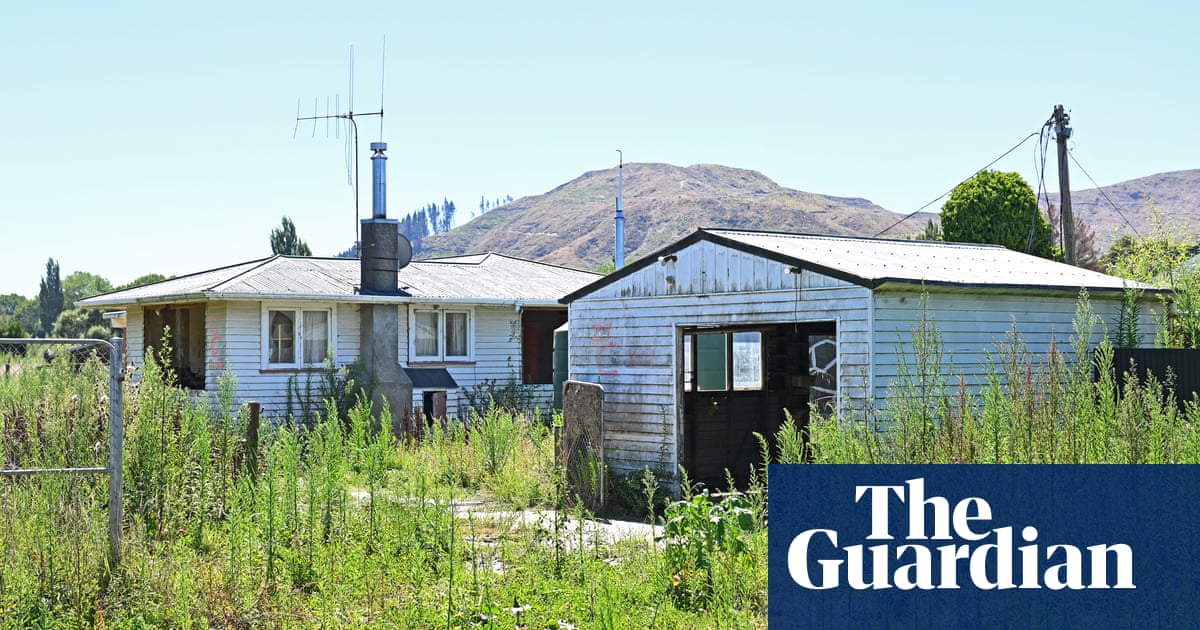
WELLINGTON, NEW ZEALAND: Most New Zealanders would be extremely happy if the current year turns out no worse than the one just gone — but Naila Hassan, on the back of a life-changing trip to Saudi Arabia, is not entirely one of them.
The government in the political capital of this South Pacific nation on Monday announced the country would shortly be entering a four-week lockdown to help thwart the spread of the new coronavirus.
As one of the country’s top Muslim police officers, Superintendent Hassan will also be eying the weeks ahead with professional concern. But she has also spent much of the past 12 months working with survivors of the carnage visited upon fellow Muslims at two Christchurch mosques.
And she still looks back with wonder at her Middle Eastern pilgrimage that came out of it, a career-capping visit to Makkah for last year’s Hajj, leading 200 survivors of the attacks and families of the victims.
The mosque terror attack, which left 51 dead, scores injured and this far-flung nation of five million reeling, came as a profound cultural and professional shock for Hassan, who spent much of 2019 picking up the pieces of the Christchurch massacre.
“It was a year I would never wish to live again,” she told Arab News, speaking in an exclusive interview shortly before the government’s announced lockdown.
At vigils, memorials and media events, she was to become the most-visible public Muslim face of the country’s police force as it grappled with the aftermath of the mosque terror attack.
Her role was set to continue this month until a number of high-profile commemorative public events around the country were cancelled because of the coronavirus situation. Hassan was booked to speak at one of the major services, in her Auckland hometown.
In addition to the personal horror she experienced over the killings, she would have spoken of initiatives in New Zealand to build better bridges the Muslim community. She would have touched on its more personal aspects, too.
Even as the event changed her public status, it also affected what for a part of her earlier life had been a strictly private faith.
Hassan was born in Britain to a Pakistani father and English mother. Her father, a draftsman, brought the family to New Zealand when she was five.
Growing up in the South Seas, she acknowledges today in a distinctively Kiwi twang, meant being a Muslim played second fiddle to her other activities. New Zealand in the 1970s was a place to “fit in at all costs.”
Indeed, she admitted, it took the better part of 25 years, she admits ruefully, “to even tell people I was Muslim.”
“It was just one of those things where as a child you want to fit in. You don’t want to be different. You don’t want to be a minority — even as a woman, really, because in my recruitment course of 100 there were just five women.”
Add to that the complexities of fitting into a New Zealand culture in the 1970s when things Muslim were not well understood.
“As a child at school, everybody probably knew we were Muslim because there were certain things we didn’t eat. It was just who we were. That was okay. But as you get older and get your own identity, other pressures come on — and you start to hide it a bit.
When offered a glass of wine, for example, she would usually decline by saying she was in training for her work as a lifeguard.
It was her activity as a lifeguard on the nation’s abundant (and abundantly dangerous) beaches that also spurred her decision to become a policewoman.
She entered the service at a time when relatively few women officers were visible in the ranks of law enforcement, and the number of Muslims even fewer still.
New Zealand has around 50,000 Muslims, although possibly fewer than that at the moment when foreign fee-paying students who are not in the country leave because of the current pandemic.
Most of the Christchurch victims were also relatively more new to the tranquil island nation that makes much of its culturally easygoing style.
“I was so shaken that it could happen in a place like New Zealand,” Hassan admitted today.
In a better sense, she was also shaken when Saudi Arabias King Salman extended an invitation for her to join almost 200 affected New Zealanders to perform Hajj.
“What a trip!” she said. “Here was something I had heard about all my life — and then I was able to experience it, especially as somebody who had hid it for so many years.”
Today she still worries about her level of safety as a Muslim, even as she celebrates the general response of fellow New Zealanders and the enthusiasm with which her calls for greater tolerance have received.
In Christchurch, where she worked particularly closely with two affected families, she saw people who previously knew little about Islamic culture made halal-friendly meals for survivors. She felt the hugs and saw the tears from strangers, including nearly $1m New Zealand dollars raised by a Jewish group in the United States. She worked closely with hundreds of colleagues on a project aimed at restoring confidence for local Muslims.
Hassan naturally still hates the wider circumstances of the past 12 months, and she admits some disappointment that this month’s events didn’t proceed according to plan. But she still draws personal solace by now looking to the future now “as a proud Muslim and today prouder than ever.”












